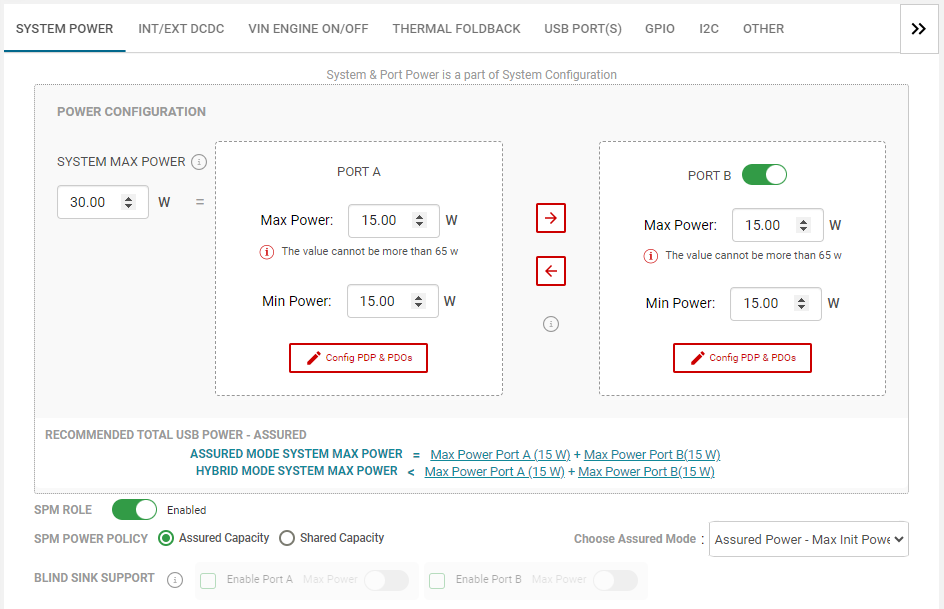SLVUBX5C December 2022 – August 2024 TPS25762-Q1 , TPS25763 , TPS25763-Q1 , TPS25772-Q1
4.1 System Power
Total system USB power and port power parameters are configurable in this page. PDPs and PDOs are auto-generated based on the power settings defined, but can be modified by clicking the Config PDP & PDOs button. When using a dual port controller device, the Port B configuration settings are available. See Figure 4-1 below.
 Figure 4-1 System Power Module
Figure 4-1 System Power Module